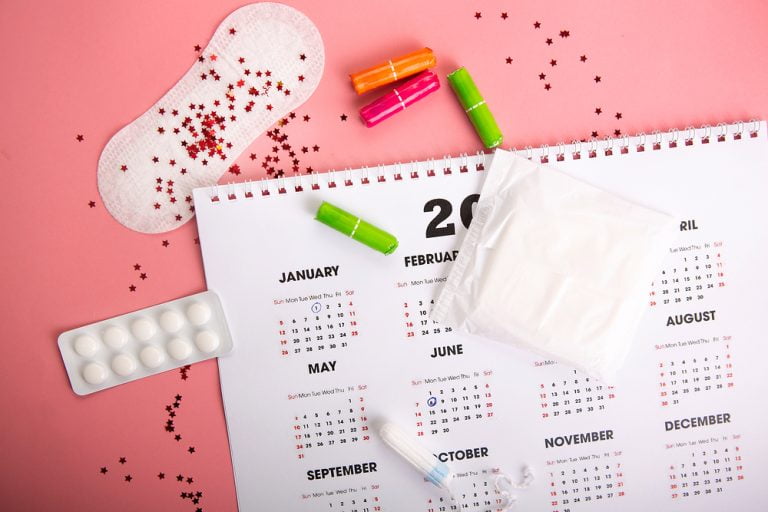Labor induction is an incredible process that can reduce the likelihood of a C-section and increase the chance of a safe delivery for both you and your baby. It can also bring mixed emotions, along with a few jitters.
To ensure you have the best birth possible, we’ve put together a list of the essential dos and don’ts before being induced. Following these tips will help you have a confident, comfortable, and positive labor.
Dos Before Induction
Let’s start with the dos. These are the proactive steps you can take to ensure you stay in control of your birth and body. Not forgetting some practical tips for making your hospital stay as pleasant as possible.
Ask Questions
Induced labor can be intense, so it’s important to iron out any worries you have before it begins. This means asking your healthcare provider as many questions as you need to.
It’s best to make a list before you speak to them, so you don’t forget anything. To get you started, here are some key questions to include:
- Why is it medically necessary?
- Is it safe to delay the induction?
- Are there any alternatives?
- Do they think an induction or an elective c-section would be best for you?
- What method will be used?
- What are the risks?
- Do you have any medical issues that may complicate the induction?
- How long will you be in the hospital?
- When is the last chance you will have to eat?
- Do they have any suggestions for things to bring with you?
- What pain relief methods will you be offered?
- How much notice will you need to give for pain relief, like an epidural?
- Can they give an epidural before starting the pitocin drip?
- How long can you attempt induction before they’ll declare a “failure to progress?”
- What are the chances of success?
Update Your Birth Plan
Once you’ve discussed the above with your healthcare provider, update your birth plan. This will ensure everyone involved knows your wishes and can provide the birth closest to what you want.
Remember, just because you’re being induced doesn’t mean you have to throw out your original plan. Yes, some things, like a water or home birth, will be off the table. But many of your preferences could still be possible.
You should consider:
- Relaxing lighting – Some hospitals offer twinkling lights; others may let you bring your own.
- Music – This can be calming or empowering, depending on your vibe.
- Switching Positions – You will likely have to wear a monitoring belt throughout your induction. But you can still bounce on a birthing ball and switch to kneeling, squatting, and all-fours positions. Laying on your back will not help labor progress, as gravity won’t be in your favor.
- Pain relief – Induced labors are often more painful than if you go into labor naturally. This means that you might want to reconsider your pain relief options. For example, women undergoing an induction are more likely to ask for an epidural.
Fill Your Birth Partner in on Induction
Now that your plan is up-to-date, give it to your birth partner. They should get up to speed on the process, including what it is, how long it takes, and how best to support you.
Contractions during induced births can ramp up quickly. So, you may also need them to advocate for you more strongly than if you go into labor naturally. This means they need to know the following:
- The pain medications you consent to.
- The interventions you consent to.
- The amount of time you would like to try to start labor before declaring a “failure to progress.”
- The circumstances under which you would consent to a c-section.
If your original choice of birth partner feels uncomfortable with these decisions, you may wish to hire a doula.
Having your partner learn the double hip squeeze and massage techniques is also a good idea. This will give them a practical way to help you relax and relieve your discomfort.
Pack Your Hospital Bag for a Longer Stay
An induction means you could be in the hospital for up to 3 days before active labor. So, your hospital bag must include everything you’ll need for at least 5 days.
Key items to include are:
- A copy of your birth plan.
- Toiletries including: toothbrush and toothpaste, shampoo, conditioner, body wash, maternity pads, and breast pads.
- A hairbrush and hair ties.
- Moisturizer and lip balm as hospital air is very drying.
- Lots of comfy PJs or night dresses. These should open at the front for breastfeeding or skin-to-skin contact.
- A dressing gown and slippers.
- 5 to 6 pairs of comfortable underwear.
- Various devices preloaded with music, TV series, and movies. Don’t forget the chargers!
- Headphones.
- A handheld fan.
- A pillow.
- An eye mask.
- An outfit to go home in.
Pack a Hospital Bag for Your Birth Partner Too
Depending on your hospital’s policy, your birth partner may be allowed to stay with you until the birth, or they’ll be sent home a few times to rest. Either way, they’ll be spending a lot of time waiting and will need supplies too.
Things to include:
- Snacks – They should pack a good supply of snacks, as the hospital is unlikely to provide them with any food throughout your stay.
- Entertainment – While it would be nice to think they’ll be focused on you the entire time, a big part of the induction process is waiting. A bored birth partner can quickly become an irritating one, so make sure they bring enough stuff to keep themselves entertained.
- Comfortable Clothes and a Blanket – They may get a chance to nap, which will be easier if they’re warm and comfy.
Eat a Light Meal
Once you arrive at the hospital, it’s unlikely you’ll be allowed to eat. This is because labor and pain medication can make you nauseous.
The problem is that your induction could take hours. So if you’re not careful, you may end up hungry and out of energy by the time you give birth. To avoid this, it’s good to have a light meal before leaving home.
However, always check with your healthcare provider first. Hospitals have different policies, and you don’t want to risk delaying your birth over a sandwich.
Stay Hydrated
Staying hydrated will keep you feeling good, reduce nausea, and make it easier for the nurse to access a vein for a drip. So, ensure you drink regularly in the hours before and throughout your induction.
Using a large bottle marked with time intervals is a good idea. This way, your birth partner can keep an eye on your intake and remind you when you need to drink.
Sleep
It’s incredibly exciting to be so close to meeting your baby. But using the hours before your induction to sleep or rest is essential. It can be a long process, and you may find it difficult to relax once you arrive at the hospital.
Getting a nap before the procedure will ensure you have enough energy when the big moment arrives to push.
Shower
You will likely be able to shower in the hospital, but possibly not until your baby arrives. This means that the hours before your induction could be your last chance to bathe for the next 24 to 48 hours.
While no one finishes giving birth squeaky clean, you’ll feel better if you’ve at least started the process feeling fresh.
Don’ts Before Induction
Now let’s go over the don’ts. Following these will help you avoid nausea, infection, and a prolonged, uncomfortable labor.
Eat Anything Heavy or Greasy
I know we told you to eat, but ensure it’s nothing heavy or greasy. Meals like this are more likely to make you feel nauseous or even vomit.
Shave
While the possibility of medical staff seeing your bits can make shaving tempting, don’t do it without asking first. Shaving can cause minor cuts and abrasions, which increase your infection risk.
Drink Caffeinated Coffee
Drinking caffeine will stop you from resting during the early stages of labor and can make it more difficult to relax as you progress. While the effects are minor, if you can skip the caffeine, you should.
Take Over the Counter Pain Medication Without Consulting Your Health Care Provider
Don’t take any pain medication without asking your medical team first. It could interfere with the pain relief you can access at the hospital. Plus, Tylenol has been proven to slow down inductions.
Drink Castor Oil
You may have heard that drinking castor oil at home can start labor. This might be a tempting way to avoid being induced.
However, despite extensive research, the jury is still out on whether or not the stomach contractions it causes are true labor or just painful cramps. Drinking it can also cause nausea, diarrhea, and dehydration.




